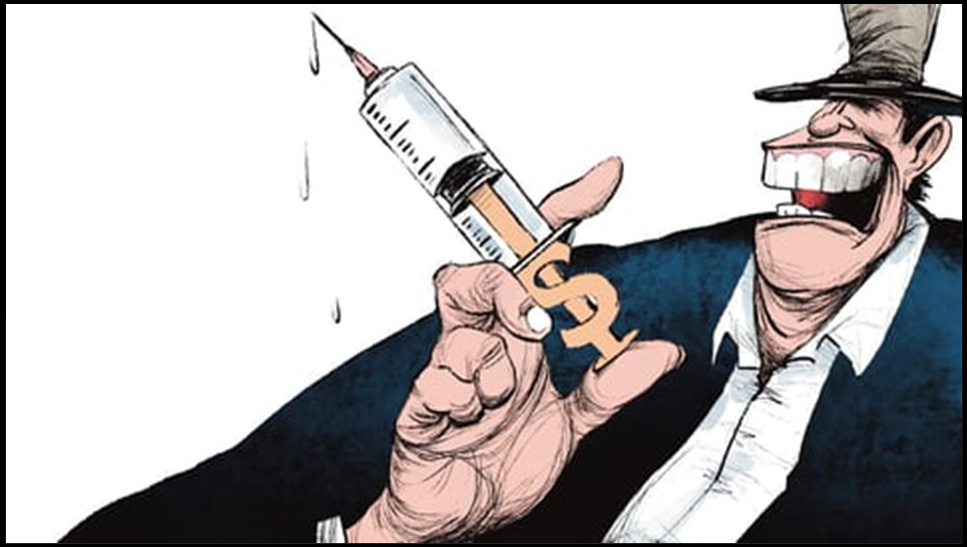INEQUALITIES IN THE GLOBAL HEALTH DIALOGUE
Syllabus:
GS 2:
- Important International institutions, agencies and fora- their structure, mandate.
- Issues relating to development and management of Social Sector/Services relating to Health, Education, Human Resources.
Focus:
- The world is negotiating a pandemic treaty to strengthen global health response. But as long as rich countries pursue their trade interests, equity will remain elusive
Source:- The New Indian Express
The COVID-19 pandemic has highlighted the dire need for a robust and equitable global health response. Despite the efforts to forge a united front, disparities remain stark, primarily driven by the rich countries’ pursuit of trade interests over public health equity. This discussion delves into the complexities surrounding the negotiation of a pandemic treaty and the inherent inequalities that jeopardize global health security.
The Emergence of COVID-19 and the Call for Global Solidarity
- Global Impact of COVID-19: The pandemic’s widespread effect necessitated a unified global response, emphasizing that no country could be deemed safe until every country achieved safety.
- Challenges in Global Cooperation: The rapid spread and evolution of the virus underscored the importance of international collaboration. Yet, the global community struggled with sharing vital data, resources, and technologies.
Negotiating a Pandemic Treaty
- Formation and Objectives: In response to the pandemic’s challenges, the world is negotiating a Pandemic Treaty aimed at prevention, preparation, and response, under the World Health Organization’s (WHO) guidance.
- Revision of International Health Regulations: Alongside the treaty, efforts are underway to revise the International Health Regulations to enhance global surveillance and data sharing.
Constraints on Global Health Governance
- Financial Limitations and Influences: The WHO’s efficacy in steering global health policies is hampered by inadequate funding and the dominance of high-income countries (HICs) and private entities in decision-making processes.
- Historical Dominance of HICs: The influence of HICs in shaping global health policies has deep roots, with priorities often skewed towards their interests, impacting the development and implementation of global health initiatives.
Historical Context and Evolution of Global Health Priorities
- Colonial Era and Tropical Medicine: Initial global health efforts focused on protecting colonizers from diseases prevalent in colonized regions, evolving into ‘tropical medicine’.
- Post-Colonial Shift to International Health: The transition to ‘international health’ saw HICs providing development aid and technical assistance, still largely driven by their economic and strategic interests.
- Rise of Global Health in Response to HIV/AIDS: The emergence of HIV/AIDS marked a significant shift towards a more inclusive ‘global health’ approach, though still primarily influenced by HICs and their trade policies.
The Ongoing Struggle for Equity in Global Health
- Neglect of Non-Communicable Diseases (NCDs): For a long time, NCDs were excluded from global health priorities until their economic implications for HICs were recognized.
- Power Asymmetry and Trade Interests: The persistent prioritization of trade interests by HICs continues to undermine global health equity, as seen in the resistance to patent waivers for COVID-19 vaccines and treatments.
The Need for a New Global Order
- Call for Collective Welfare: A transformative approach to global health governance is necessary, emphasizing collective welfare and equity over proprietary interests and profit.
- Role of LMICs in Shaping Global Health: Low- and middle-income countries must assert a more significant role in determining the future of global health, advocating for policies that prioritize the common good over narrow economic interests.
The negotiation of a pandemic treaty presents an opportunity to address the longstanding inequalities in global health. For genuine progress, there must be a concerted effort to prioritize equity and collaboration over trade interests. The global response to COVID-19 has laid bare the flaws in our current system, calling for a renewed commitment to a health dialogue that serves all of humanity, not just the interests of the affluent. A shift towards a more equitable and inclusive global health framework is not just necessary; it is imperative for the future wellbeing of our interconnected world.
Global Initiative for Digital health
|
Source:
https://universalinstitutions.com/who-declaire-loneliness-as-a-global-health-threat/
https://www.newindianexpress.com/opinions/2024/Mar/29/inequalities-in-the-global-health-dialogue
Mains Practice Question:
“Analyze the evolving role of the Indian Judiciary in the realm of environmental governance, with particular emphasis on landmark cases that have shaped environmental jurisprudence and policy-making in India. Discuss how judicial interventions have contributed to the balance between environmental protection and economic development, citing specific examples from landmark cases. Evaluate the impact of these interventions on public awareness and policy formulation. (250 words)”




